FEATURE World Wetlands Day: Anup Mathew on Mangrove Conservation
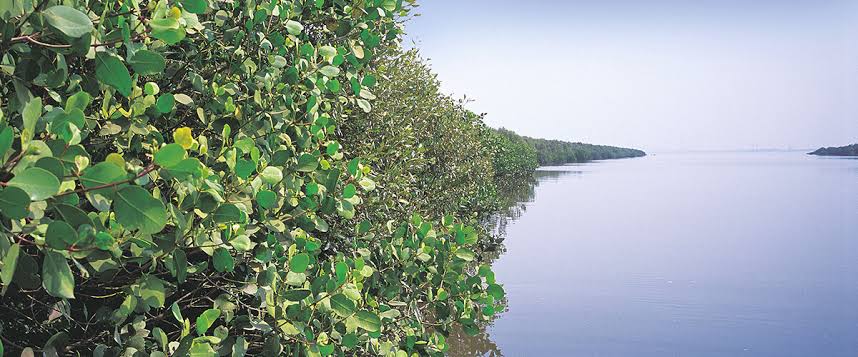
GLOBAL – World Wetlands Day marks the date of the adoption of the Convention on Wetlands on 2 February 1971 in Ramsar, Iran. The 2020 theme for World Wetlands Day is an opportunity to highlight wetland biodiversity, its status, why it matters and to promote actions to reverse its loss. On this account, Mr Anup Mathew, Sr. Vice President & Business Head, Godrej Construction, Godrej & Boyce, in conversation with The CSR Journal, highlights the importance of mangrove conservation. Mangroves are coastal forests. The ecosystem of mangroves establishes and grows at the interface of land and water bodies like the sea, creeks, estuaries, bays and lagoons, most commonly found in the inter-tidal area, between the high tide and the low tide. Unlike other terrestrial plants, mangroves have the unique ability to survive and grow in an unstable saline environment. This ability comes from adaptations like natural filters in roots (to control salt intake), salt glands (to exclude excess salt), cable roots (for fixing the tree in marsh), breathing roots (to compensate oxygen deficiency in soil), stilt roots (for support), lenticel glands (for exchange of gases between the plant and the atmosphere) and viviparous germination (seeds germinate and produce primitive shoot and roots on parent tree). These adaptations are not found in any other types of plants. READ MORE GLOBAL What the mighty mangrove tells us about our broken relationship with nature
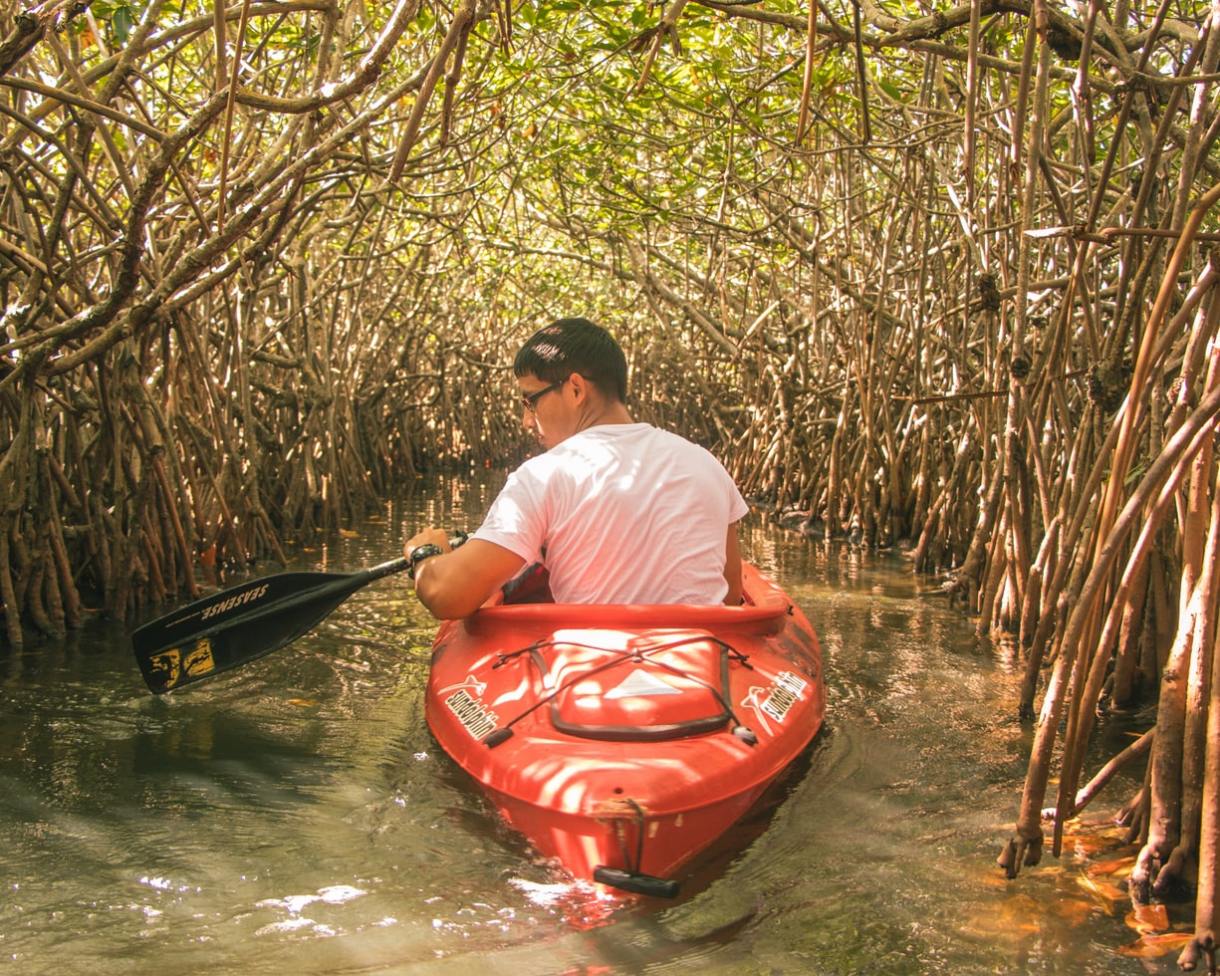
GLOBAL – Mangroves and the rest of the natural world offer value to humanity at no cost. Every year, the environment provides about $125 trillion in free services, for example pollination, water filtration, oxygen production and flood protection. This is worth more than the entire global GDP. The planet is like a bank account where every living thing pays in deposits, but we are the one species that keeps withdrawing funds. Our overuse of our natural resources is costing us $6 trillion every year. By 2050, those costs could rise to $28 trillion. Over the last century, we have become out of balance with nature. Today, 96% of mammals are human beings and our domesticated livestock. Only 4% accounts for everything else, from elephants to tigers to pandas. 70% of birds are our domesticated poultry, mostly chicken. In the ocean, 90% of the large fish – from sharks to tuna to cod – have been removed in the last hundred years. And 40% of insect species in the world are now endangered, too. In 2019, the United Nations reported that around one million animal and plant species are threatened with extinction, many of them within decades. READ MORE AFRICA Illegal industrial fishing hampers small-scale African fisheries

MADAGASCAR – A new analysis shows that industrial fishing fleets operating in the waters of African countries and territories spend an average of nearly 6% of their fishing effort inside zones set aside for small-scale fisheries In some countries, foreign fleets spend the bulk of their time — more than 90% in Somalia, for example — within the prohibited zone Communities along Africa’s coasts are often dependent on fish as a source of food and protein But incursions by large-scale fishing vessels, called “the most common form of illegal fishing in the region,” can threaten the sustainability of the resource, create conflict over it, and endanger the lives of fishers themselves Fish are an indispensable source of food and protein for communities in many African countries. But the growth in industrial-scale fishing fleets around the continent has put that resource and the livelihoods it supports at risk, according to a recent analysis. READ MORE East African fish in need of recovery
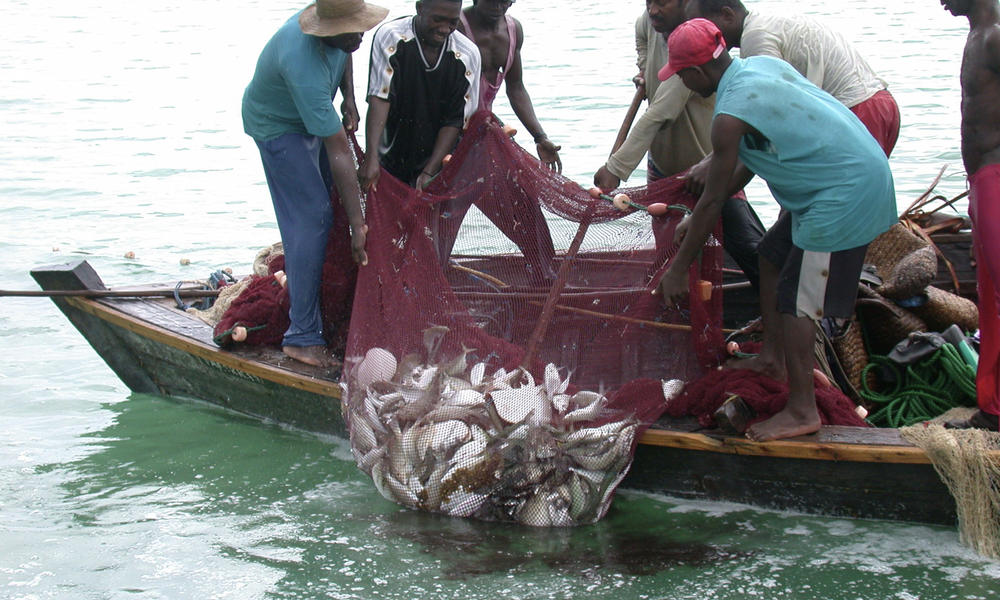
EAST AFRICA – A study of East African coral reefs has uncovered an unfolding calamity for the region: plummeting fish populations due to overfishing, which in turn could produce widespread food insecurity. In a newly published paper in the journal Marine Ecology Progress Series titled "Coral reef fish communities, diversity, and their fisheries and biodiversity status in East Africa," WCS Senior Conservation Zoologist Dr. Tim McClanahan reports that overfishing is widespread across the region. The remedy, says the sole author of the study, is to recognize the need to rebuild fish stocks to ensure they are providing the maximum possible catch for the developing countries of Kenya, Tanzania, and Mozambique. The African continent has among the highest human population growth rates and associated food security issues. "Whereas fish stocks within marine parks and areas in distant or turbulent locations were found to be at healthy levels, coastal areas open to fishing were another story," said McClanahan. "We have found that fish catches have been declining in Africa in recent years by a million tons a year, and this study shows that much of this decline in East Africa is due to declining fish stocks." READ MORE AMERICAS Volunteers Sought for Large-Scale Mangrove Cleanups
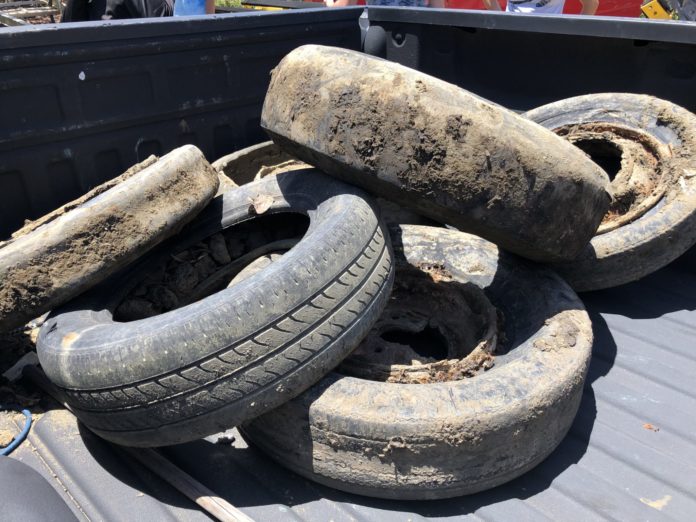
St. Thomas – A large-scale community cleanup of the St. Thomas East End Reserve is now expanding to include Salt River, St. Croix and Coral Bay, St. John and seeks community-minded volunteers on each island. Organizers of the 3rd Annual Great Mangrove Cleanup estimate that nearly 5,000 pounds of trash were removed from mangrove shorelines of the East End Reserve in previous 2018 and 2019 events, with more than 200 community members participating. Cleanup planners expect a similar turn out again this year in hopes of removing more than 1,000 pounds of marine and hurricane-deposited debris. Tires were pulled out of the mangroves during the 2019 cleanup. (Photo by Kristin Wilson Grimes. “It’s easier than ever to participate in the 2020 Great Mangrove Cleanup with events happening this year on St. Thomas, St. John, and St. Croix,” shares Kristin Wilson Grimes, an assistant professor of watershed ecology at the University of the Virgin Islands. “We invite the U.S. Virgin Islands community to join us to help keep our mangrove shorelines clean and thriving!” READ MORE Schools assist in Réserve Naturelle’s mangrove, sea grape re-planting project
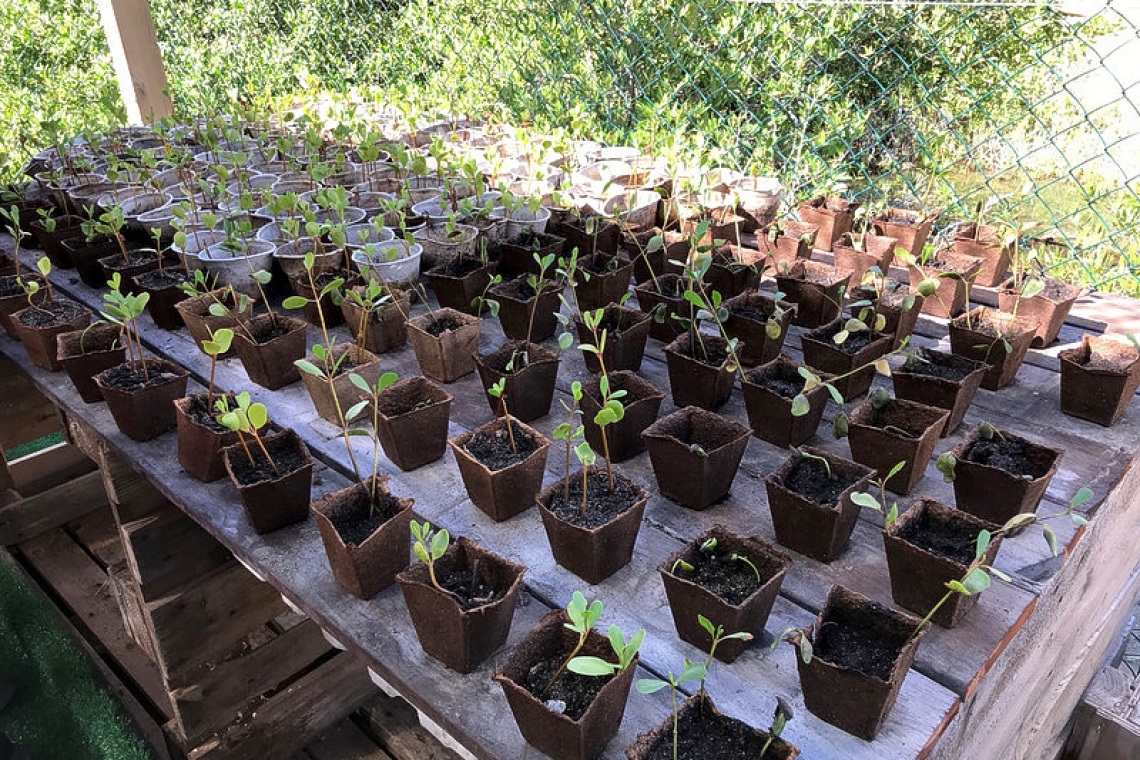
ST MARTIN – Schoolchildren have been enlisted by Réserve Naturelle to assist with its mangrove re-planting project as a way of stimulating awareness of biodiversity and importance of protecting the environment. Mangroves in the ponds were largely destroyed by Hurricane Irma in 2017. Réserve Naturelle Director Nicolas Maslach on Friday, joined by rangers from the Réserve, gave a presentation of the project at the mangrove nursery in Orient Bay to board members of Rotary Club St. Martin Nord which funded 50 per cent of the project cost for 24,250 euros. Some 40 per cent of the donation has been forwarded in advance to the Réserve. The funding was made possible back in 2018 thanks to four Michelin-starred chefs who organized a charity gala dinner in France for 90 guests at 550 euros per head with part of the proceeds going to Rotary Club. At the nursery four species of mangrove seedling in small pots were arranged on tables under shade along with one for sea grapes. The mangrove seedlings stay in the pots about four to five months before the roots start to grow out and then they are planted, explained ranger Ashley Daniel. They are planted in different areas depending on whether they are suited to saltwater or freshwater or earth. Daniel added, the mangroves are planted in a quadrant of squares which makes it easier to determine how many mangroves die and how many survive and thrive. READ MORE Bay Project remembers late philanthropists at groundbreaking for Mangrove Bayou

USA – It’s been a long time coming, but the official groundbreaking for the Mangrove Bayou of the Bay Project has just taken place A number of stakeholders joined in on the celebration, kicking off the start of construction on the project that will completely transform 53 acres of the Bayfront over the next 10 to 15 years But the ceremony also held another deeper meeting. Attendees were able to remember the generosity of two of their first donors, Charles and Margery Barancik Mangroves don’t always get the credit they deserve. They work hard to clean the water, keep runoff out, provide a habitat for the birds and deposit key nutrients to the underwater ecosystem. “But they do it very quietly. We take the mangroves for granted almost," said Rebecca Barancik. "They’re not very showy like all of our beautiful flowering plants and our oak trees that are huge and you can’t avoid them. It just reminded me of Margery and Chuck, the way they very quietly, very humbling worked to make a difference in this community.” READ MORE ASIA How Sri Lanka's mangrove forests can save lives
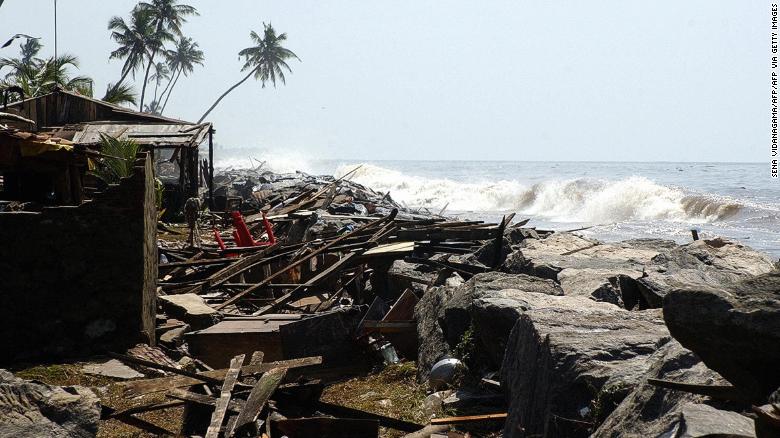
SRI LANKA – On December 26, 2004, a cataclysmic tsunami struck the coasts of countries in South and Southeast Asia. Sri Lanka was one of the worst affected nations — the wall of water devastated the island's southern and eastern coasts. However, the tsunami's impact was uneven with some places suffering far more damage than others. Scientists assessing the landscape after the disaster discovered that some areas which emerged relatively unscathed were protected not by sophisticated warning systems or barriers — but by their ancient mangrove forests. n 2015, Sri Lanka announced that it would protect all of its mangroves — the first country to make that declaration. The tsunami experience wasn't the only factor in the decision. Mangrove forests help to create healthy seas because they act as nurseries for fish, prawns, crabs and other marine animals that breed among the trees' stilt-like roots. READ MORE Legal obstacles to territorial rights recognition, sustainable production and conservation on forest peoples’ lands
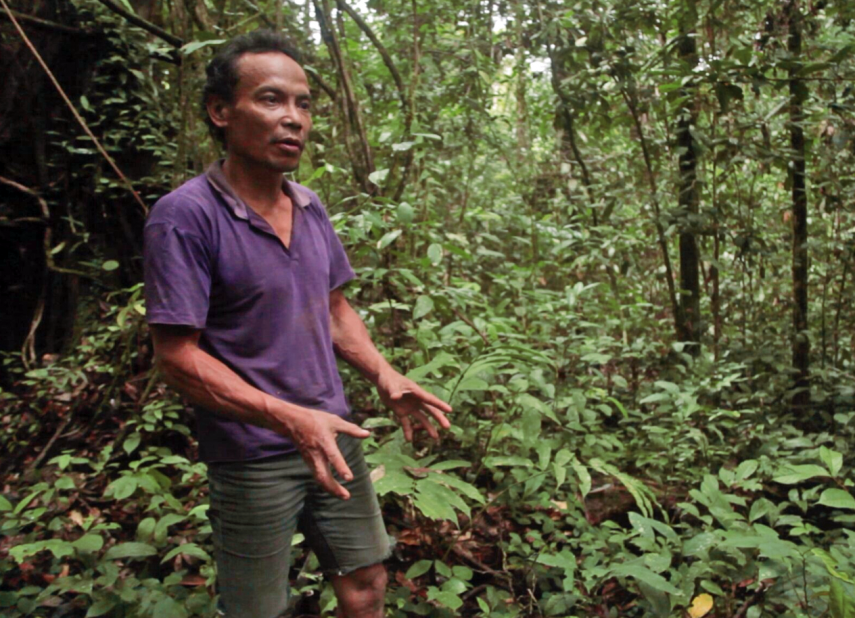
INDONESIA – Most forest peoples in Southeast Asia practice mixed economies in which mobile foraging is a key element in their livelihood strategies, based on hunting, fishing, gathering, shifting cultivation and, increasingly, small-scale commodity production. As well as being central to their identities and economies, such activities are regulated by customary law. In both Indonesia and Malaysia, under the constitutions and other laws, custom is recognised as a source of rights in partial conformity with international human rights laws on indigenous peoples. In practice, rights are often not formally recognised, are readily extinguished by official land designation and, even where recognised, rarely extend beyond farmland to include wider foraging areas. Customary law communities are thus highly vulnerable when their forestlands are allocated to developers of large-scale monocrops such as oil palm and pulpwood. Voluntary ‘sustainability’ standards now require companies to respect customary rights and communities’ free prior and informed consent to land-use plans designed to ensure both development and forest conservation, but legal limitations hinder good practice. Based on detailed field studies and legal reviews, the paper finds that due to these limitations, national legal and procedural reforms are needed if voluntary standards are to protect rights and forests. READ MORE Mangrove swamps… a tourist attraction for the fans at the World Cup 2022
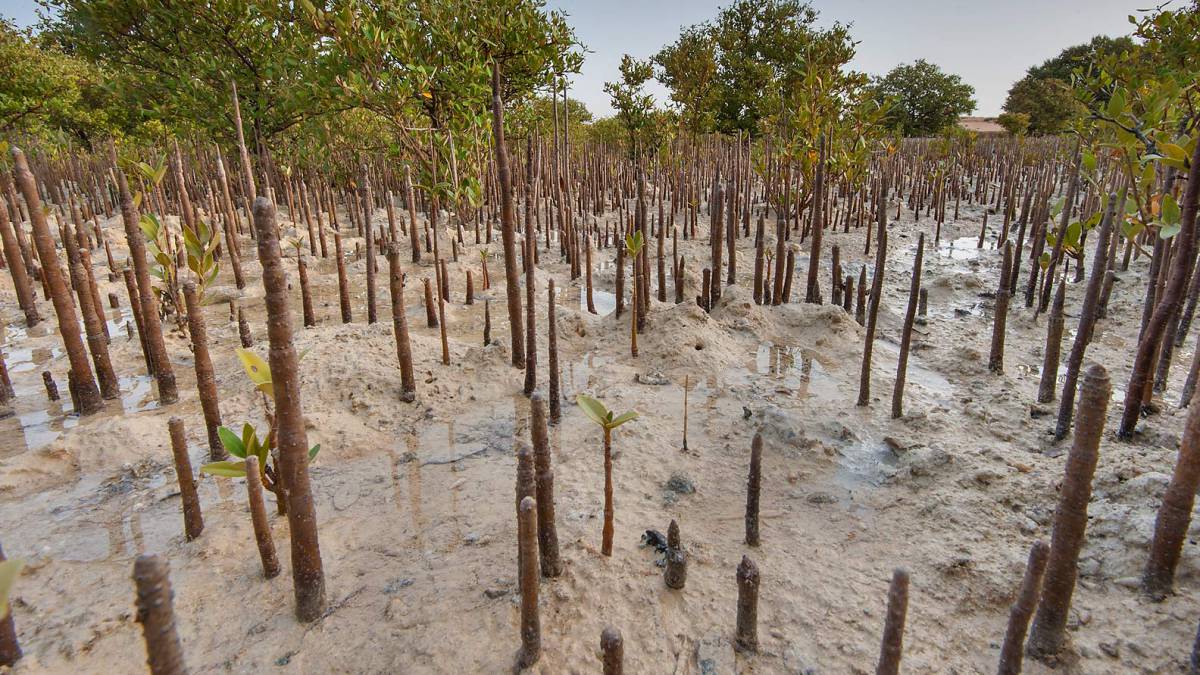
QATAR – Despite the small size of the Arab country and the lack of historical attractions, Qatar has a number of tourist sites which the Supreme Committee for Delivery and Legacy, responsible for the preparation of the World Cup, is aiming to promote as attractions which can be visited and enjoyed during the tournament.One of these are the Mangrove Swamps located to the north of the coastal city of Al Khor, North Qatar, close to the Al Bayt stadium, one of the venues which will host the World Cup, and the second largest in the country.The mangrove swamp is a perfect place for rowing in kayaks. The area is also known as Purple Island, due to the purple dye produced for thousands of years from the sea snails which live in the region. READ MORE Saudi Arabia's shrimp fishing ban comes into force

SAUDI ARABIA – Saudi Arabia’s annual shrimp fishing ban came into force on Saturday, with the threat of hefty fines for those who break the rules. The six-month ban is part of efforts to restore shrimp stocks along the Gulf coast and bring longevity to an important economic resource. Shrimp fishing and farming are becoming increasingly important to the kingdom as it looks to reduce its dependence on oil. Crown Prince Mohammed bin Salman’s Vision 2030 specified that the development and expansion of the aquaculture sector was important for food security and job creation in rural areas. Those caught flouting the ban face fines of up to 10,000 riyals. The ban will be lifted at the end of July, as the fishing season begins to pick up. The kingdom is also investing in farmed shrimp as part of the aquaculture development program. READ MORE OCEANA Land use change has a big impact on the carbon stored in mangroves

AUSTRALIA – Mangrove forests are important to the livelihoods of millions of people living along coastlines, providing fish resources, protecting communities from storms and coastal erosion, and myriad other benefits. However, these benefits are severely undervalued, so mangroves are prone to conversion to other land uses with a more immediate economic benefit. This unique wetland ecosystem continues to be lost at a rapid rate, and the impacts this mangrove loss has on the important benefits they provide is poorly known. One particular benefit that mangroves provide is their ability to suck up carbon emissions from the atmosphere and store them as “blue carbon” in their wood and waterlogged soils. This makes mangroves an effective tool to mitigate global climate change. But what happens to this huge amount of stored carbon when mangroves are disturbed? READ MORE
Like this newsletter?
Pease consider donating to MAP to keep it going.
Giving could never be easier | ACTION ALERTS Enough! Pledging zero tolerance to attacks against environmental and human rights defenders. SIGN THE PETITION PETITION – Sea turtles or condominiums?
Sand mining and construction work would wipe out a marine biodiversity hotspot and destroy the livelihoods of local people, who have not been consulted. Please SIGN! PETITION – Save Penang! Reject the 3-Islands Reclamation!
The lack of public consultation and detailed information about the project is shocking in view of the size of proposed reclamation which is 4,500 acres or 7 square miles
PLEASE SIGN
PETITION – Save Pulau Kukup National Park – second largest mangrove island in the world. Sign The Petition Like this newsletter? Pease consider donating to MAP to keep it going. Giving could never be easier 
Mangrove Restoration Map VIEW MAP HERE 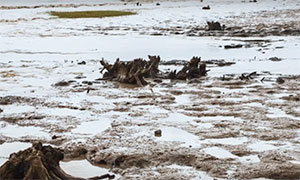
Restoring The Natural Mangrove Forest
Watch movie 
Community Based Ecological Mangrove Restoration in Rufiji Delta VIEW VIDEO Video: Mangroves for the Future – A look bacK. As the latest phase of Mangroves for the Future (MFF) draws to a close, this video highlights some of the project’s most successful initiatives – from local women supporting national park management in Viet Nam to an island in the Maldives that has become a model for waste management, and everything in between. View Here WANT TO GET INVOLVED?
Follow and Join MAP!
   
Like this newsletter? Pease consider donating to MAP to keep it going. Giving could never be easier 

VOLUNTEER OPPORTUNITY 
MANGROVE ISSUES Want to learn more about mangroves?
Our short presentation will give you a better understanding of the issues we are working to solve. WATCH PRESENTATION What is CBEMR? Easy to follow fact sheet – CLICK HERE What is EPIC? – The Ecosystems Protecting Infrastructure and Communities (EPIC) project: the role of ecosystems as protective barriers against climate induced hazards MANGROVES APP AVAILABLE
A pictorial field guide for easy identification of various mangrove species and learning about the mangroves ecosystem. CLICK HERE View MAP’s uploaded Videos at MAPmangrover’sChannel
Question Your Shrimp Consumer/Markets Campaign!
WATCH VIDEO Mangrove Restoration in Asia – Watch Short Video The Value of Mangrove Forests View Video CBEMR Experience Exchange MAP 2017 English Subtitles
VIEW THE VIDEO Mangroves: Guidebook to Malaysia – Click Here
Mangrove rehabilitation in Asia – Local Action and cross-border Transfer of Knowledge for the Conservation of Climate, Forests and Biodiversity VIEW VIDEOS HERE SHARE MAP'S VISION
CLICK HERE to watch short introductory video. Together we can work "at the roots of the sea". Our short documentary, Reducing the Risk of Disaster through Nature-Based Solutions : Mangroves
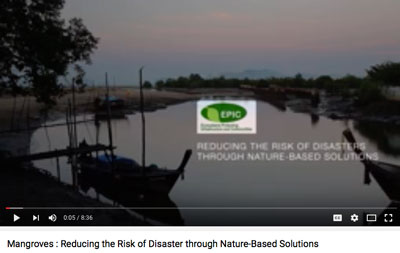
Exclusive Interview with Alfredo Quarto, Co-Founder and Executive Director of Mangrove Action Project – See more
Marvellous Mangroves Curriculum The Marvellous Mangroves Education Forum is an online hub for those utilizing the Marvellous Mangroves (MM) Curriculum. It gives students, teachers and anyone interested in mangroves, the opportunity to learn and share ideas themed around the curriculum, to connect and communicate with others around the globe whilst exploring mangroves from your computer or on the go. VISIT 
The award-winning Marvellous Mangroves (MM) curriculum educates children on the importance of mangroves and their ecological functions, teaching them about modern challenges and mechanisms for sustainability. VIEW VIDEO Marvellous Mangroves Curriculum in Bangladesh – WATCH VIDEO
MARVELLOUS MANGROVES IN BRAZIL
En Portuges 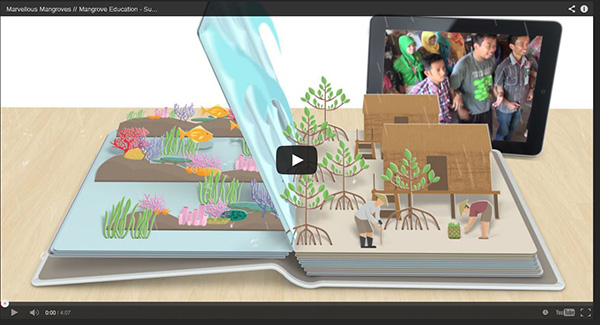
Marvellous Mangroves – A Curriculum-Based Teachers Guide. FOR MORE ON MAPs AWARD WINNING CHINA MANGROVE CURRICULUM VISIT

VIMEO SHOW
VISIT OUR "MM" WEBPAGE Check out our presentation for more details on Marvellous Mangroves Read this 10 page history of the development of MAP’s educational curriculum VIEW DOCUMENT
Article in Canada's Green Teacher Magazine – Read More
Like this newsletter? Pease consider donating to MAP to keep it going. Giving could never be easier 
Green Planet Fundraising Assists MAP – LEARN MORE
Volunteer Opportunities with Mangrove Action Project CLICK HERE
"Question Your Shrimp" Campaign Question Your Shrimp- Don't Buy or Sell Imported Tropical Shrimp! Sign the Petition Learn more about the affects of the shrimp industry on mangroves by visiting our blog
Editor’s Note: Mangrove Action Project’s Executive Director, Alfredo Quarto was interviewed about shrimp by Green Acre Radio’s Martha Baskin
LISTEN TO INTERVIEW Sign the Consumer's Pledge to avoid imported shrimp
Not yet a MAP News subscriber?
Click here to subscribe. Note to Our Readers: We strive to keep active links in our newsletter. However, due to circumstances beyond our control, occasionally links to stories may become broken. If you find a link to a story is not functioning, please cut and paste the headline into your browser search bar. In most cases you should be able to locate the original story.
|



























